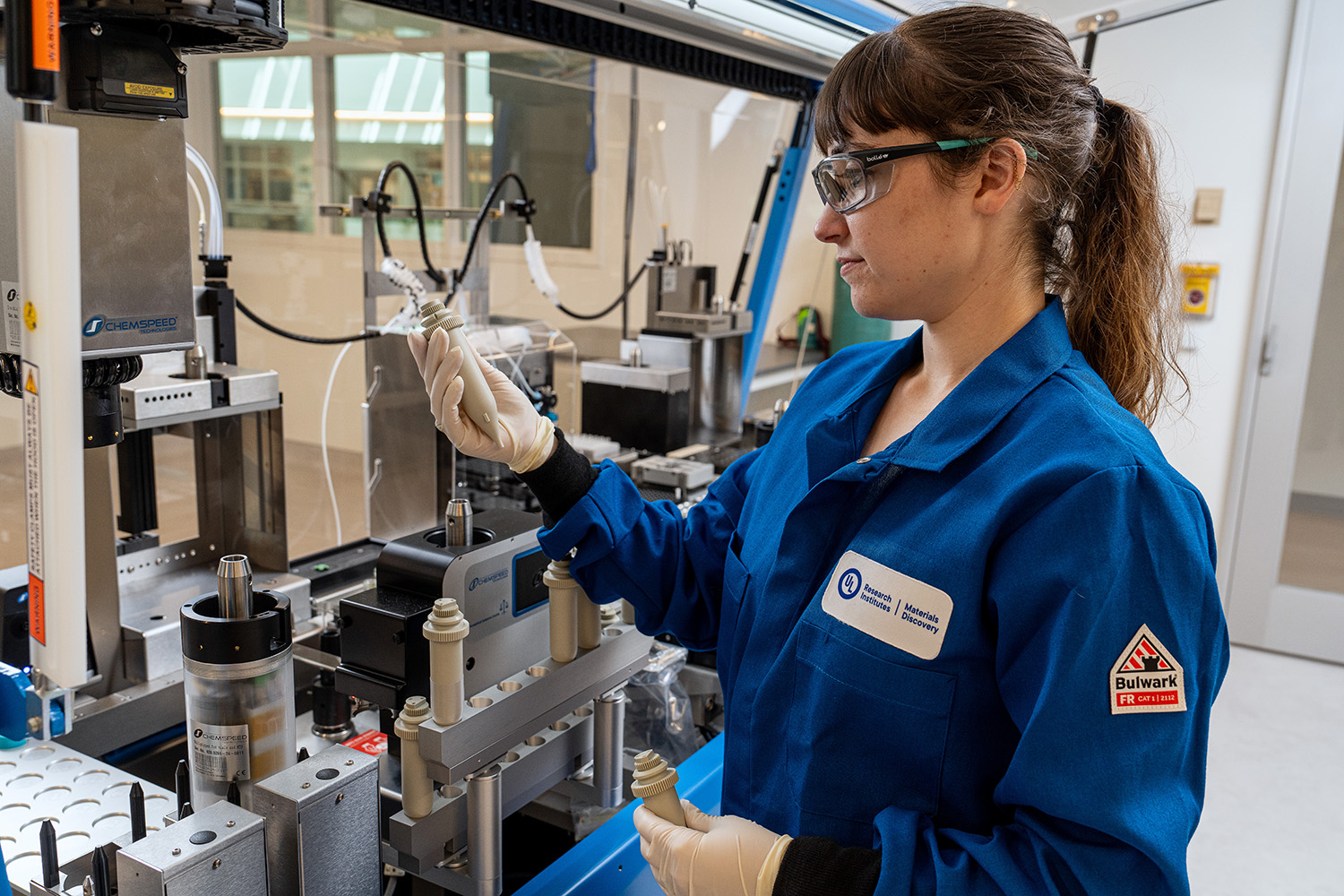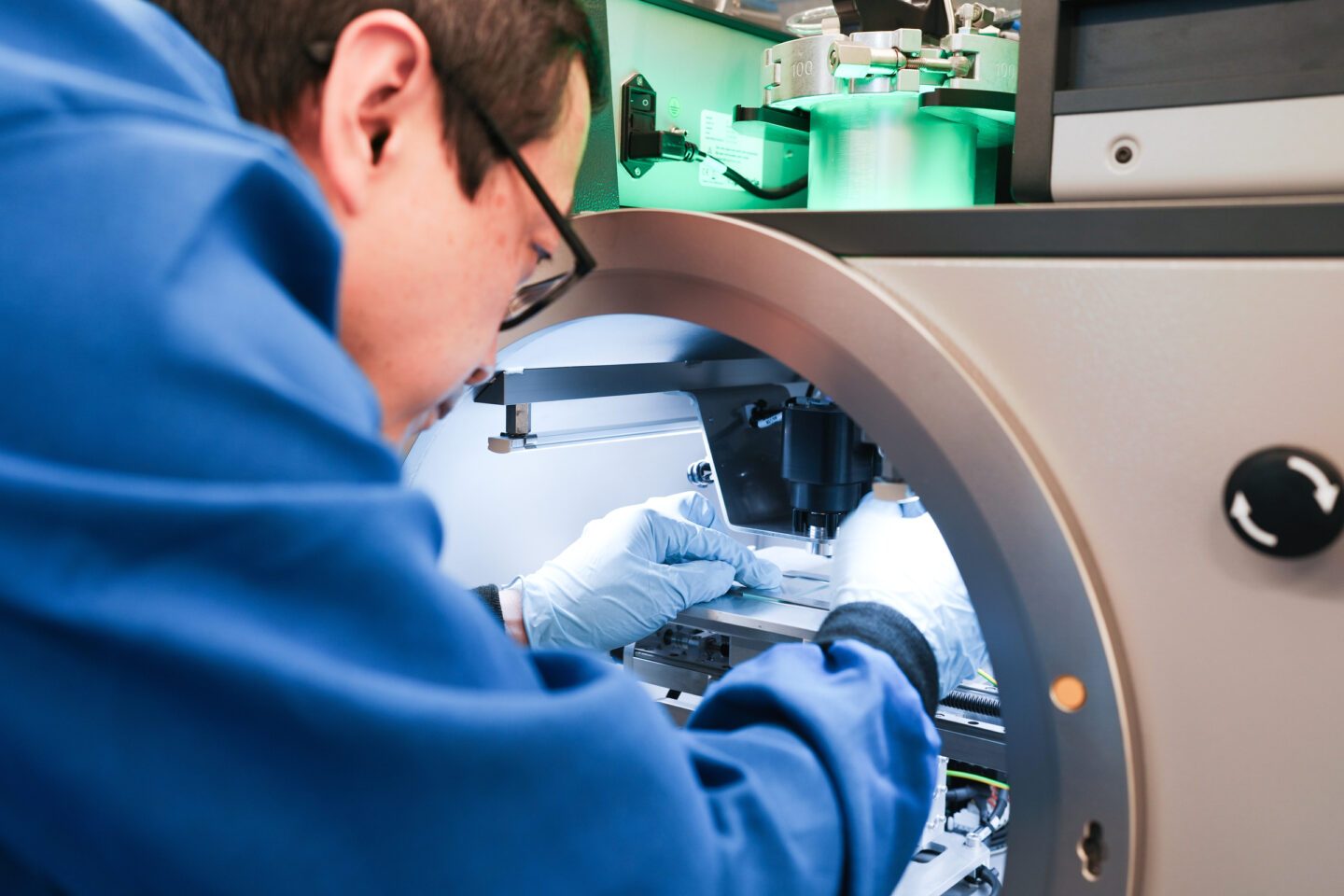

Materials Discovery
New materials can address global safety challenges
With a history reaching back to the earliest ages, materials discovery has long played an essential role in technological progress. The discovery of new materials has driven the development of innovations ranging from bronze plowshares to modern lithium-ion batteries.
Today, the Materials Discovery Research Institute (MDRI) works to develop and deploy new materials with the potential to address current global safety challenges. We harness the power of advanced computing and high-throughput experimental methods to create innovative materials for renewable energy and environmental sustainability, while also paying careful attention to implications for human health.

Intelligent material design for a sustainable future
The technological marvels of the silicon age fostered an era of notable progress. Yet technology also may introduce unintended consequences that pose safety risks to humanity and our planet.
MDRI aims to discover and characterize materials that address those safety risks. By modifying the chemical composition and structure of existing products to create new and better materials, we strive to resolve the critical challenges of producing resilience for a sustainable future and protecting individual and societal health. Among our top priorities is research into materials capable of carbon capture and energy storage, with an eye toward reducing the adverse impacts of humanity’s reliance upon fossil fuel resources and enabling a transition to renewable energy sources. Our research builds on our commitment to a safer, more sustainable future.
Automating to accelerate discovery
Our approach taps into the potential of advanced computers to bring the process of materials discovery into the 21st century. With the aim of leveraging artificial intelligence and machine learning for rapid materials discovery, we are establishing computational chemistry capabilities that will work in tandem with our experimental capabilities to refine our discovery process. We have invested in automated instrumentation to enable high-throughput experimental techniques capable of rapidly analyzing and synthesizing new material designs, improving both the accuracy and reproducibility of our research while greatly accelerating the pace of discovery. High-powered computational tools simultaneously evaluate many potential materials using complex simulations — generating results far more quickly than traditional one-at-a-time materials discovery testing.
The knowledge we produce will support the safe and equitable use of novel materials throughout the world.

News & Featured Updates

Stay informed
Sign up for MDRI Updates
Stay connected with Materials Discovery Research Institute as it works to discover and deploy new materials with the potential to address global safety challenges.
By submitting this form, I am opting in to receive communications from UL Research Institutes (ULRI) containing news and updates about its work and initiatives. I understand that I can manage my preferences at any time and agree to ULRI’s online policies.
Partnerships
Everyone benefits when world-class institutions work together to take on big challenges. Join us.
Grants
We’re funding scientific research to make the world safer, healthier, and more sustainable. Learn about funding opportunities.
Careers
Work to make the world a safer place. Start a rewarding career at UL Research Institutes with other socially minded colleagues focused on innovation, collaboration, and ethics.


